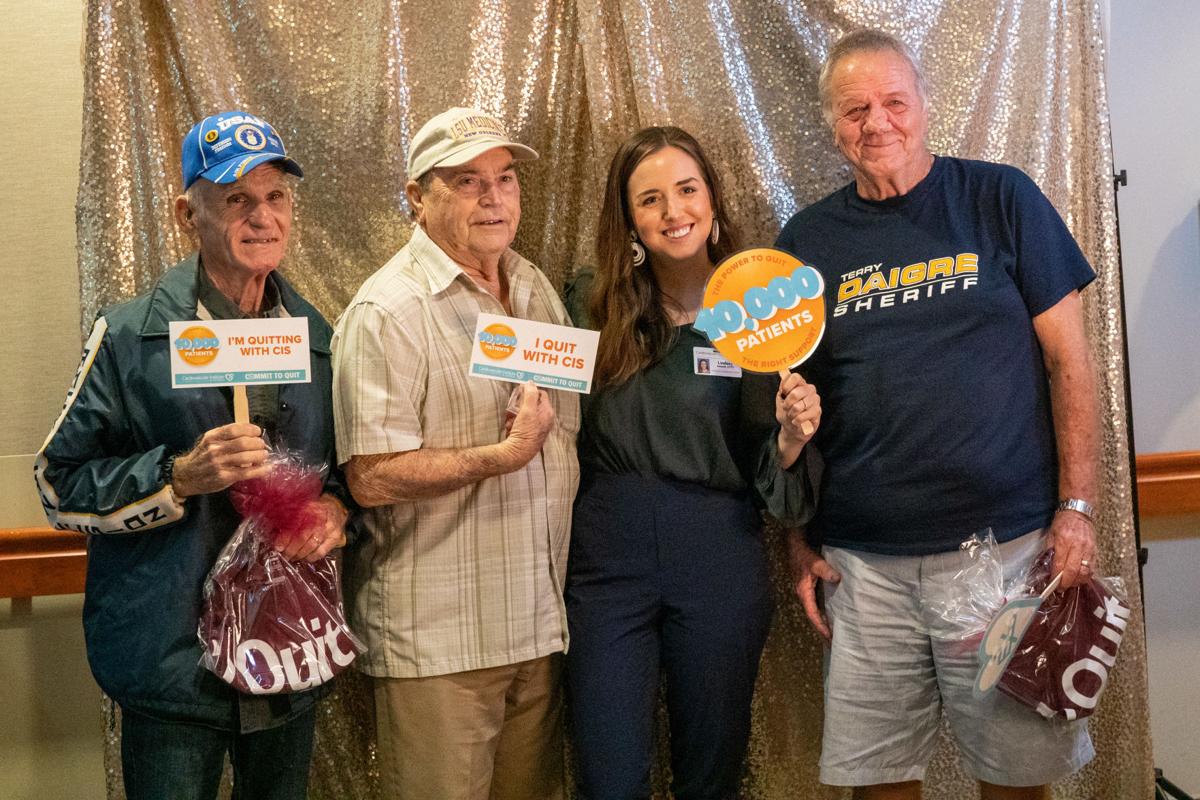
Dorian leaves Puerto Rico; heads toward Florida
August 29, 2019
Models and meteorologists: Expect Dorian to stall
August 29, 2019On Wednesday, the Cardiovascular Institute of the South (CIS) celebrated treating over 10,000 patients through their Commit to Quit tobacco cessation program.
The event, held at the CIS facility in Houma (225 Dunn St.), opened with glowing remarks about the program and its patients by the doctors, counselors, executives and other facilitators of Commit to Quit.
Following those sentiments, patients — some of whom smoked multiple packs a day for over 50 years and developed serious illnesses due to cigarettes — gave testimonials on how well the program helped them in quitting smoking.
Many of them tried to quit smoking before, but they acknowledged that the Commit to Quit program was ideal choice for them to do away with tobacco altogether.
“For the first phone call, Rebecca [Templeton] called me. Just by talking to her, I wanted to quit,” said 71-year-old Berwick native Vickie Pierrotti, who has been smoking since the age of 15. “It’s not, ‘You have to quit.’ I heard that all my life. That made me want to [smoke] more.”
Pierrotti said it wasn’t just medication she received from the program that helped her quit but also the counseling and ways they work with you versus just telling you what to do.
“The way they talk to people is marvelous,” Pierrotti told the Times. “They don’t go against you. If I say I had a bad day and could have chewed a cigarette backwards, she’d [Rebecca] call. She talks to me in a calm voice, and it’s like, ‘Okay, I’m good.’”
Pierrotti hasn’t smoked a cigarette since May.
In addition to counseling and medical evaluations, Commit to Quit also gives each of its patients a personal experience, which aims to get to the root of their smoking habit.
“The first thing we have to do is to recognize what are the challenges for these patients, why did they start smoking in the first place and what are some other barriers that might actually prevent them from quitting,” said Dr. Darrell Solet, physician at CIS, who works with patients in Commit to Quit. “So, each one of the programs that we put in place for our patients is very individualized and very, very specialized. As we identify the reasons why they actually started smoking in the first place, we try to combat those reasons.”
Solet said he also encourages his patients to treat themselves to something they want at the six-month or one-year smoke-free mark with the money they saved from buying cigarettes — which he calculated to be anywhere from $1,500 to $3,000 a year for most of his patients.
“We’ve had several patients who actually followed through on that, which has been very exciting. When they come in for the visits, I will tell them, ‘Look, whatever that thing is, if it’s that cruise, great. I want you to go to the website. I want you to print out pictures of the cruise ship. I want you to print out pictures of the destination; I want you to put those pictures on your bathroom mirror, in your car, on the refrigerator — in places where you will see it on a regular basis so that it will be much more motivation for you to help you quit.’”
The program itself also awards its members.
At Wednesday’s ceremony, participants were given various awards, depending on what stage of the Commit to Quit journey they were in. They were also treated to a full dinner spread and professional photo portraits, courtesy of CIS.
Commit to Quit offers its services for free to qualifying Louisiana residents as part of the Smoking Cessation Trust — created through money the state received after a class action lawsuit against certain tobacco companies in 2011.
The quit rate at CIS is five times the national average.
“It’s been absolutely amazing. Smoking cessation has always been a passion of mine even, before the program that was started by the state,” Solet said. “So, it’s very exciting to see patients come in, help counsel them, put a plan in place and watch them walk through that plan to successfully quit smoking.”








